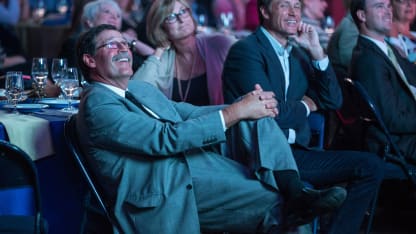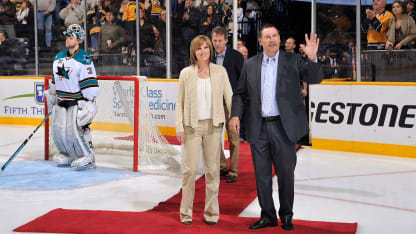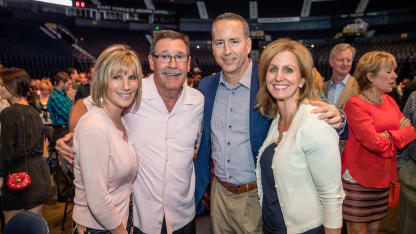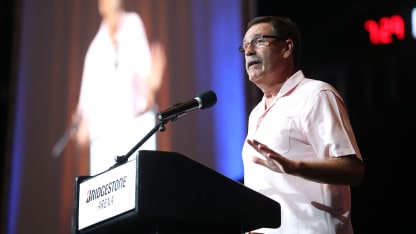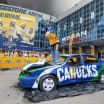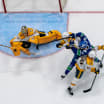"He wants to be the rock"
Peterson's mindset has been put to the test in recent times by another significant medical blow to his family.
About six months ago, his son-in-law, Aaron Smith, was diagnosed with a fist-sized, Grade 2 brain tumor known as an Astrocytoma. Doctors removed much of the tumor during a 12-hour brain surgery a couple of months ago, but also had to take parts of his memory.
Smith, who has two small children - Brooklynn and Brady - with Peterson's daughter, Kristin, had to learn to speak all over again. He now faces chemotherapy and radiation treatments to combat what remains of the tumor.
"They came here for Christmas and that was really special," said Peterson, tears rolling down his cheeks. "It's been such a tough go for him, and he has an even tougher go ahead of him."
To help support Aaron and Kristin, Peterson's wife, Tami, spends much of her time with them in Kansas City, looking after the children. Peterson himself is taking care of a large portion of Aaron's huge medical bills, as well as leaning on his own personal struggles to offer encouragement to his son-in-law.
"I'm trying to be as supportive as I can," Peterson said. "I tell him that we all have our crosses to bear. I know it's a tough situation. But you've just got to keep moving ahead."
Said Weber: "Petey gets very emotional about that and understandably so. He wants to be the rock. He wants to be the steady one for his daughter because she has so much to worry about."
Peterson's desire to aid those around him has been evident for years in Tennessee.
In 2007, Peterson established the Peterson's Foundation for Parkinson's Disease to raise awareness of the disease. In 2011, PFP joined forces with the Predators to initiate fundraisers like Petey's Preds Party and the Predators Brent Peterson Celebrity Golf Classic.
Over the years, Peterson estimates the two groups have raised about $700,000 to help fight Parkinson's.
In the same way Peterson has seen his own life improve, he wants the same for others.
"I hope I've helped some people along the way," Peterson said. "Sometimes you can't always see results. But I think I have."
